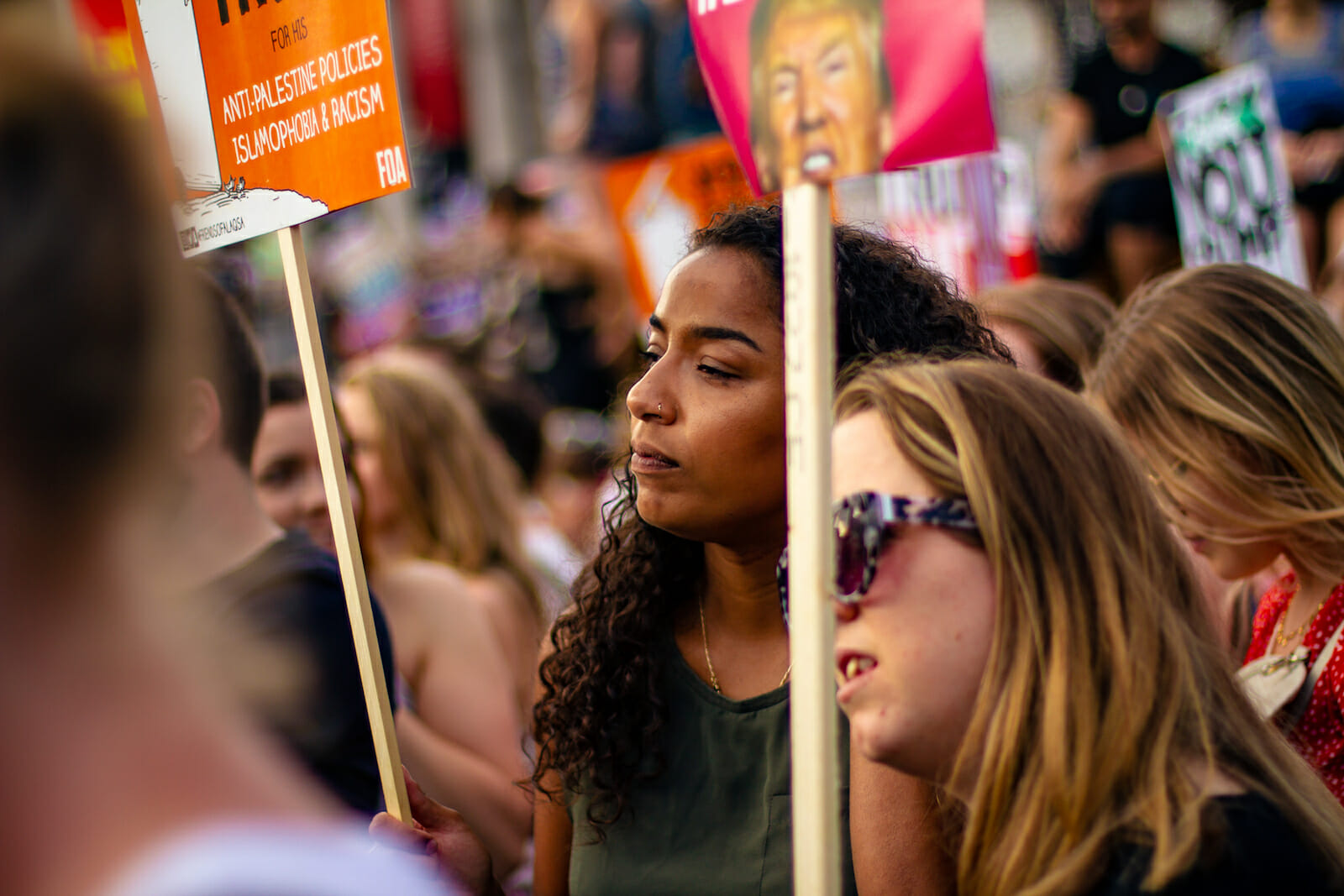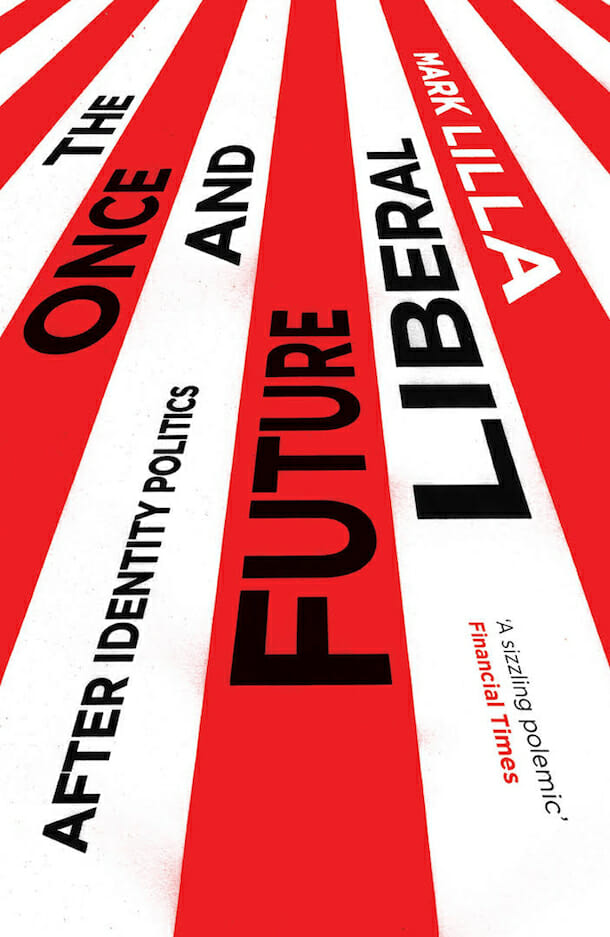
Politics
Apocalypse Now: Why Liberals Prophesy Doom in Today’s America
Since the election of Donald Trump the voices we hear from the American liberal establishment and the mainstream media have been steadily growing more and more alarming. This political season the alarm on the left reaches an unprecedented level. Dark prophecies of gloom and doom have firmly replaced the upbeat expressions of boundless optimism.
The depiction of the current state of America by the liberal establishment and media offers a dramatic vision of an impending apocalypse—a decisive break in American history and culture. According to this vision, America that emerges will be different from the one that was created over two centuries ago. This new America will forfeit the historical mission intended by its creators.
The message liberals convey is nothing short of terrifying. They try to convince Americans that the ignorant authoritarian who runs this country tries to destroy American democracy; that his policies will lead to an imminent economic collapse and increased social strife; that America is infested with foreign spies and is about to be overtaken by a ruthless foreign dictator; and that the country is rapidly losing its international standing and prestige as the leader of the free world. And the litany goes on and on, and on. If America’s present is bleak, its future is even bleaker with no redeeming hope in sight.
To offer just one example, the CNN—a mouthpiece of the liberal establishment—has created a documentary that compares America under Trump to life portrayed in “The Handmaid’s Tale”—a dystopian drama that describes life in a totalitarian society where women are forced into sexual slavery by authoritarian and militaristic dictatorship, where poverty is rampant and violence reigns supreme.
To an impartial observer this vision appears to be one-sided and vastly exaggerated, if not bizarre. It simply ignores a large number of facts that tell a very different story—a story of economic revival, increasing employment, and rising incomes even for those Americans who are in the low-income bracket. A realistic view of America today must include these facts and be more balanced and less apocalyptic in its assessment.
Some of those who conjure up this apocalyptic vision may do it for political consumption, not because they really believe it. But there is no doubt that many in the liberal camp take these prophecies very seriously. What compels liberals to believe that a dramatic rupture is about to take place in American history? Why do they see apocalypse?
Liberalism has a long and remarkable history. Its ascent that began back at the beginning of the 19th century was steady, reaching its peak at the end of the 20th century. Following the collapse of communism, liberalism emerged as the most influential force in the world. Its ideology and social practice spread far beyond its traditional sphere of influence to Eastern Europe and the former Soviet Union. Even the countries where communist regimes remained in power, such as China, borrowed heavily from the liberal experience.
From the very inception of liberalism, emancipation was and remains its main mission; it constitutes the core of its social and political practice. From the time when the first liberal constitutions were written to the present day, liberals have relentlessly tried to extend what they regard as fundamental rights and freedoms to all people, both in their own countries and around the world. This relentless pursuit of emancipation explains the enormous influence that liberalism has enjoyed. This influence was growing steadily through much of the history of liberalism. It has begun to decline only relatively recently. Liberals suffered their first major setback with the election of Ronald Reagan as President of the United States. Reagan’s victory reinvigorated American conservatives whose standing in American politics is on the rise. But it was not until the election of Donald Trump that liberalism has sustained the most dramatic defeat in its history. Now in the second year of Trump’s presidency, the liberals are desperately struggling to salvage what little has left from their former glory. Today they face the sad fact that after centuries of their pursuit of emancipation they have not only failed to achieve their goal, but their policies have alienated a huge number of Americans who have chosen to vote against them.
Many liberals are trying to come to grips with their failure. There is no shortage of explanations for this disastrous course of events. Some see the reason in the unscrupulous character of Donald Trump who, in their view, uses the most detestable and dirty tricks to advance his goals. Others blame their defeat on racism and sexism still deeply entrenched in American society. Still others see adverse economic conditions as the main reason that contributed to their defeat. These are just some of the explanations and there are many others. All these explanations have one common feature: very few of them question the liberal doctrine—that is, the fundamental principles that shape the theoretical perspective and practice of liberalism—or express any doubts as to the correctness of the political course they have pursued in the recent time.
Mark Lilla is one those who sees problems with liberal politics. In his well-known book The Once and Future Liberal: After Identity Politics, Lilla questions the politics of identity and difference that liberals have pursued in recent time. He also disagrees with the liberal’s fixation on diversity that, in his view, have made Trump’s victory possible. Lilla blames the liberals for their failure to appeal to Americans as Americans and emphasize the issues that affect a vast majority of the American population. He argues that liberals have failed to formulate the politics of “common good” and appeal to a universal democratic “we,” rather than to parochial tribal identities. However, such critical voices are still very rare among the liberals today and they are generally shunned in the liberal circles.

However, even Lilla in his criticism does not question the fundamental principles that shape the liberal perspective, just the specific policies they pursued. Even Lilla does not express any doubts about the general liberal approach toward emancipation. As such, his criticism raises more questions than provides answers. One still wonders what guided liberals in making their policy choices.
Liberalism places the individual and individual rights in the center its theory and practice. The foundational proposition that supports the entire edifice of liberalism is the ontological priority that liberals assign to the individual. They accept this priority as self-evident truth, or what Kant called “synthetic a priori judgment.” They accept it on faith, without any justification or empirical support.
Since the ontological priority of the individual is not justified, there is no logical reason why it should be preferred to all other possible foundational propositions—for example, the ontological priority of community over the individual as in socialism. This is not to argue that one proposition is better than the other; this is simply to say that neither one can be proven to be true; one must simply believe that one is true and the other is not. And since there is no proof of validity, such propositions can be affirmed only by denying all others; their affirmation has to rely on brute force of exclusion, rather the force of argument. In other words, the liberal perspective is exclusive since it excludes other possibilities and it does so without any justification.
As has been pointed out, exclusions rely on force. No matter what form such exclusion may take, it is still violence. Exclusion also requires maintaining the elite that decides what should be included and what should be excluded, thus protecting the integrity of the doctrine. The existence of elite implies domination. Any exclusion necessarily leads to domination and oppression. Due to the exclusive elitist nature of its doctrine, the social and political practice of liberalism is also exclusive, elitist, and, consequently, oppressive.
Emancipation is by definition incompatible with domination. The most essential condition of emancipation is the elimination of domination in all its forms and the recognition of the fundamental equality of all humans. Yet, as has been argued above, the liberal theory is exclusive. Therefore, liberalism cannot in principle eliminate domination and thus achieve emancipation.
The extension of rights and freedoms by liberals necessarily require that the recipients have to subscribe to the fundamental propositions (for example, the ontological priority of the individual) that serve as organizing principles of liberal theory and practice. In other words, the beneficiaries should set aside whatever fundamental beliefs and principles they may have, renounce their autonomy, and unwittingly embrace the principles of liberalism. Such “inclusion” does not recognize and respect their autonomy and can hardly be regarded as emancipation and empowerment. It empowers only those who affirm their own principles, values, and beliefs.
Here’s the part of our #TrumpShow documentary about “The Handmaid’s Tale.” Show creator Bruce Miller says “I would be very happy if my show became irrelevant as quickly as possible…” https://t.co/RuKzAjyQsS
— Brian Stelter (@brianstelter) July 21, 2018
Liberals are not unaware of their problem with inclusion. There have been many detractors who criticized liberalism for its racism and sexism. Liberals have not been insensitive to these criticisms and have tried to come up with solutions. However, they looked for solutions within the main theoretical framework of liberalism; these solutions did not involve any fundamental revisions of the doctrine. On the contrary, they sought to affirm it. As a result, the policies designed to achieve emancipation could not achieve their objective. They merely contributed to the fragmentation of society and the increased social strife. Such is, for example, the fate of multiculturalism and the politics of identity and difference. They have not advanced the emancipation project; rather, they led to the increased competition among various groups for domination.
Rights are by definition inclusive and can only be applied universally. The politics of identity and difference, for example, is not about universality. It is applied arbitrarily to selected groups of citizens. Therefore, the politics of identity and difference is not about rights but about privileges; and privileges are by definition discriminatory.
The tension between rights and privileges creates obvious difficulties for progressives in justifying their policies. For example, in order to justify their policies designed to benefit African-Americans, liberals invoke the argument of historical injustice. They argue that black slaves were for a long time denied fundamental rights under the U.S. Constitution. As a result, they were disadvantaged and suffered from numerous injustices and injuries. Justice, liberal argue, requires restitutions that would compensate African-Americans for the burden of historical injustice that they still carry.
However, as logical as this justification may appear, it still misses one important point. Even if black slaves were granted full rights under the U.S. Constitution at the same time as whites, this fact would not change one simple fact: they would still have to subscribe to and adopt the exclusive and elitist ideology formulated by European whites. In other words, they would still suffer from exclusion and, consequently, would still be subject to oppression and domination. Thus, ironically, even the extension of liberal rights to black Americans does not mean their inclusion and empowerment. One can see the effects of such “inclusion” in the discrepancies between the attitudes and beliefs of the majority of the African-American community and policies of the liberal elites. African-Americans, for example, tend to be predominantly very religious and often bring religion into public life. Liberals, by contrast, support the separation of church and state and believe that religion belongs to the private sphere. An overwhelming majority of African-Americans tend to be pro-life and against abortions, while liberals are strongly pro-choice and support family planning.
At the same time, the policy of according privileges to African-Americans in restitution for the historical injustice alienates many American whites who do not feel responsible for the act of injustice committed long time ago. They cannot change the past and, therefore, they can never make full restitution since they have no access to the distant past when the injustice was committed. Thus, they have to carry a permanent sense of guilt; they are condemned without any possibility of absolution for something that they have not done.
The ultimate outcome of the politics of identity and difference is that it does not satisfy anyone. It does not satisfy the blacks that feel excluded and disempowered because they have to embrace an ideology alien to them. It also alienates the whites that refuse to accept the guilt and bear the responsibility for actions that they did not do. Thus the politics of identity and difference so ardently advocated by the liberals fails on both sides. The main reason for this failure is the simple fact that liberalism has been and remains exclusive, elitist, and ultimately disempowering for everyone except the elites that promote it.
The elitist and exclusive liberal practice has been the main reason for the growing gap between the liberal establishment and society. As a result of this gap, liberals have had to shun democracy and rely increasingly on hierarchical control (for example, government bureaucracy and courts) to advance their agenda. However, the result of this strategy has only been further isolation of the liberal elites. One manifestation of this isolation is the rise to the idea of the so-called “Deep State”—the suspicion held today by many Americans who believe that the liberal elites try to subvert democracy and impose their will on the American people.
The reliance on hierarchical control has had another adverse consequence for liberals. Hierarchical domination is not conducive to creativity and innovation. It usually leads to stagnation and ossification. By strengthening hierarchical controls liberals have impeded the free exchange of ideas and innovation. Their theory and practice have remained remarkable stagnant. They have been unable to generate new ideas and approaches to deal with new problems that America faces in the world today.
Over the last several decades America has been undergoing a dramatic transformation. Technological advances in such areas as robotics, computers, information and communication technology have had a dramatic effect on both economy and society. Machines have been increasingly replacing human labor in performing routine mental or physical operations. Many jobs have disappeared as a result of these developments and the process is unlikely to end any time soon. These changes have profoundly affected and will continue to affect the social structure and politics. There is no doubt that we will have to adapt our practice accordingly to the new conditions.
Yet there are no signs that liberals are about to offer something new. They continue to cling to their traditional pieties and tired truths. They offer no new perspectives and no new approaches. They have utterly failed to change and the result is the growing gap between their social practice and contemporary reality.
There is no doubt that liberalism is going through some difficult and traumatic times. Liberals cannot fail to see the glaring discrepancy between what they expect of their policies and the actual results these policies bring. This discrepancy is undoubtedly traumatic since it signals that liberalism does not work the way it is supposed to work. Liberals have a hard time understanding and interpreting reality. Their world in which they have lived for so long is collapsing and there is little they can do to stop this collapse. The metaphor of apocalypse is entirely appropriate in this case. But we have to remember that what collapses is not the reality itself, but the view of reality that liberals have.
There is no way to stop the processes that are changing our world. Liberals are neither capable nor willing to do so. Their best response to the crisis situation they face can only be a profound revision of their own theory and practice—the way they do things. In order to implement this revision, they must end hierarchical control and domination of their elites.
For liberals, the stakes are high. They are about nothing less than the project of emancipation to which liberals have devoted themselves with such commitment and dedication in the past. Time will tell whether they will choose the path of change or will continue to languish until extinction; whether they will be able to abandon their old gods and pieties and rededicate themselves with new energy and vigor to the utterly important and very noble goal of universal emancipation.

